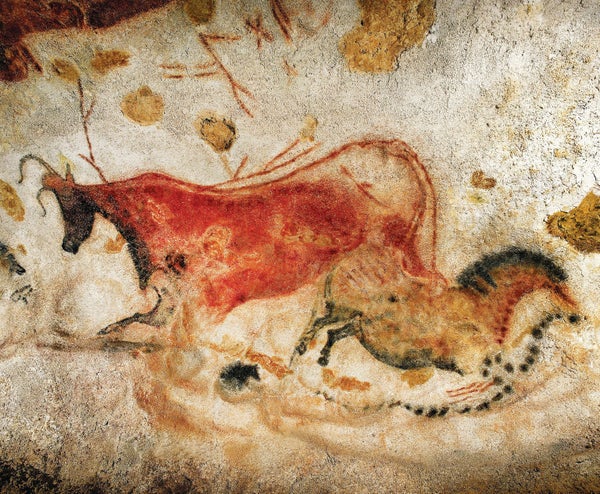Edited by Dava Sobel
The Dead Sea scrolls were mostly saved
by bribe and threat: unmindful finders
re-interred the rest in hopes of
gain. It vanished or decayed.
A trooper in the Greek campaign
blown by Wehrmacht mortars down
a limestone chute, glimpsed there a lettered
chest—lost masterworks? new graphs
On supporting science journalism
If you're enjoying this article, consider supporting our award-winning journalism by subscribing. By purchasing a subscription you are helping to ensure the future of impactful stories about the discoveries and ideas shaping our world today.
by Euclid or his heirs, perhaps. Never
reclaimed: the next rounds covered it
up again. Fountains of blazing
loam, then forced retreat—the blasted
ground left no remains of site-map
to be guessed. Great Aztec wheels;
Lascaux red bulls; dried funeral garlands
of Neanderthals: all brought to
light by restless chance—a dropped hoe
or a wandering goat. Vast evidence
unknown, we stand on ranks
of shoulders buried deep in earth
a fragmentary tune, made by the
breeze against a bone protruding
from a crumbled canyon wall.
